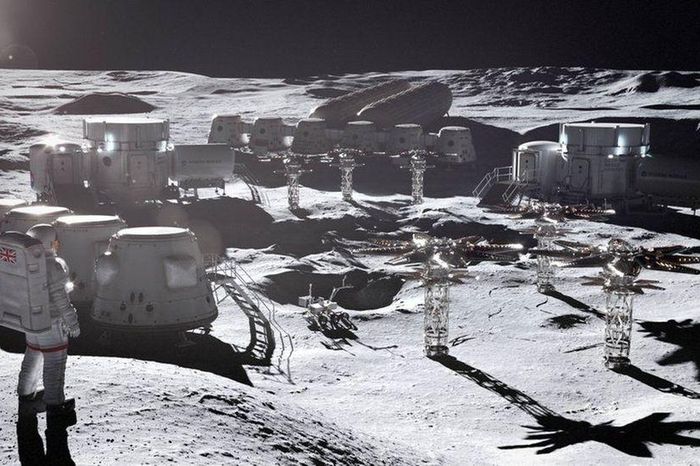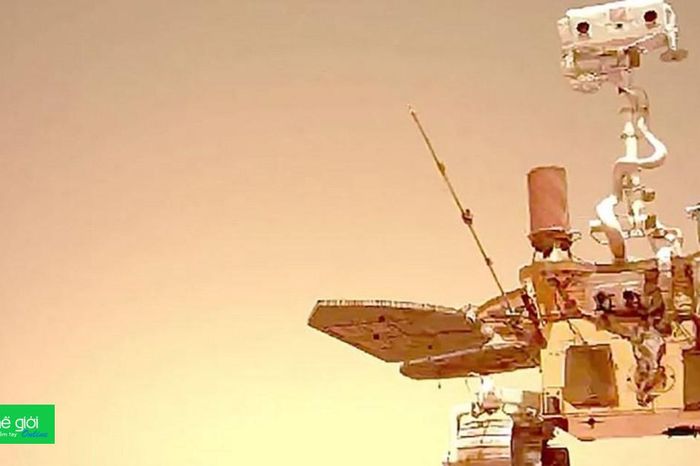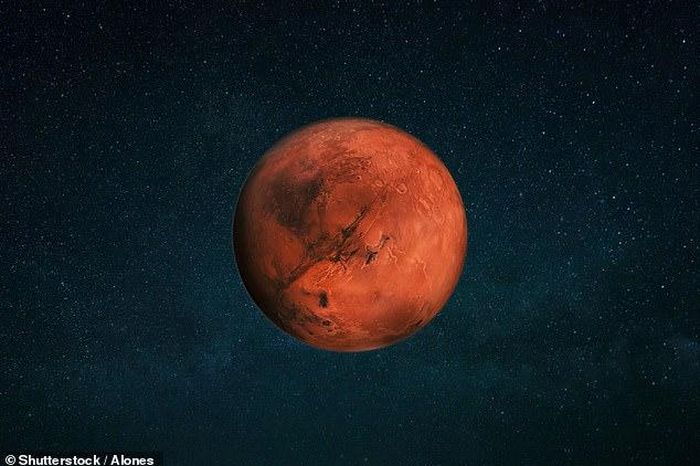Organic matter on Mars was not created by life?
According to SciTech Daily, these materials expected to be traces of life were collected by NASA's Curiosity robotic lander, operating in the Gale Crater area, which may have once been a wet plain.
A new study led by Professor Yuichiro Ueno from the Tokyo Institute of Technology (Japan) and Professor Matthew Johnson from the University of Copenhagen (Denmark) has just reported bad news.

Landscape in the Gale Crater area of Mars - Graphic image: SCITECH DAILY
The article published in the scientific journal Nature Geoscience said they discovered this organic matter has a carbon-13/carbon-12 isotope ratio significantly lower than what is found on Earth.
Organic matter on Earth is mainly associated with biological processes, but in the Martian environment, a different mechanism may be responsible.
That is why there is a difference in isotope ratios compared to organic substances formed by living organisms.
This discovery does not confirm that Mars is lifeless, but does dampen hopes that the large amount of organic matter on Mars was not created by life, but by natural processes.
And it wouldn't be surprising if subsequent missions by NASA or other space agencies find abundant organic matter on the surface of Mars.
Perhaps the key to the problem is the development of technologies to determine which types of organic matter are made by life and which types originate from the different environments of Mars.
You should read it
- The strangest objects ever taken on Mars surprised many
- 5 most interesting findings about Red Planet
- Stunned to discover river fossils on Mars
- There are major changes in the atmosphere of Mars
- Find strong evidence of life on Mars
- Why are microorganisms living 'so tough' on Earth but still hard to survive on Mars
 Detection of extremely hot exoplanet with winds of more than 8000km/h
Detection of extremely hot exoplanet with winds of more than 8000km/h This is what you would see if you fell into a black hole
This is what you would see if you fell into a black hole Miniature reactor - a solution to supply energy to lunar bases
Miniature reactor - a solution to supply energy to lunar bases Experts are confident that China can surpass the US to become the first country to bring samples from Mars to Earth
Experts are confident that China can surpass the US to become the first country to bring samples from Mars to Earth Nokia is about to bring 4G network to the Moon
Nokia is about to bring 4G network to the Moon NASA found traces of methane gas near a crater on Mars
NASA found traces of methane gas near a crater on Mars